Explore the Best AI Image Gallery

The Algorithmic Brush: Navigating the Ethics of AI-Generated Media
Artificial intelligence (AI) is rapidly transforming countless facets of our lives, and the realm of media creation is no exception. From generating realistic images and videos to composing music and writing scripts, AI-powered tools are blurring the lines between human and machine creativity. While this technological advancement offers exciting possibilities for artists, designers, and content creators, it also raises a myriad of ethical concerns that demand careful consideration.
Impact on the Creative Industry
AI-generated media has the potential to revolutionize the creative industry in both positive and disruptive ways.
- Increased Efficiency and Accessibility: AI tools can automate tedious tasks, allowing artists to focus on higher-level creative endeavors. They also empower individuals without specialized technical skills to create compelling content.
- New Creative Possibilities: AI algorithms can generate unique and unexpected outputs, pushing the boundaries of artistic expression and leading to novel forms of art and storytelling.
- Democratization of Content Creation: AI-powered tools can make content creation more accessible to a wider range of individuals, fostering greater diversity and inclusivity in the creative landscape.
Ethical Considerations
While the potential benefits are undeniable, the rise of AI-generated media presents several ethical challenges that must be addressed:
- Copyright and Ownership: Who owns the copyright to AI-generated content? Is it the developer of the AI tool, the user who provides the input, or the AI itself?
- Bias and Representation: AI algorithms are trained on massive datasets, which can reflect existing societal biases. This can lead to the perpetuation of harmful stereotypes and the underrepresentation of certain groups in AI-generated content.
- Misinformation and Deepfakes: The ability to create highly realistic fake media raises serious concerns about the spread of misinformation and the potential for malicious manipulation.
- Transparency and Accountability: It can be difficult to understand how AI algorithms arrive at their outputs. This lack of transparency makes it challenging to assess the reliability and fairness of AI-generated content.
Navigating the Future
As AI-generated media continues to evolve, it is crucial to establish clear ethical guidelines and regulations to ensure responsible development and deployment.
- Collaboration and Dialogue: Fostering open discussions among stakeholders—artists, technologists, policymakers, and the public—is essential to navigate the complex ethical challenges posed by AI.
- Education and Awareness: Raising awareness about the capabilities and limitations of AI-generated media is crucial for informed decision-making and critical consumption.
- Promoting Ethical AI Development: Encouraging the development and adoption of AI algorithms that are transparent, accountable, and fair is paramount.
- Investing in Research and Innovation: Continued research into the ethical implications of AI is essential to guide its responsible evolution.
The intersection of AI and creativity presents both immense opportunities and significant challenges. By embracing ethical principles, fostering open dialogue, and promoting responsible innovation, we can harness the power of AI to enhance human creativity while safeguarding the integrity of artistic expression.
](https://images.ai-img.art/thumbnails/150/bbf691f1c69e4801062c68d0435463c5bf76258e3984fbe3cc25e9e46174cf88.webp)


](https://images.ai-img.art/thumbnails/150/03de477e462377e62b34fea23ab1cbf6d4557f4077cc8bed9f23388af1200721.webp)

](https://images.ai-img.art/thumbnails/150/16ec42833d204af37c75cc776a794c54661cbfe1061c899680a4976a7f74cd51.webp)
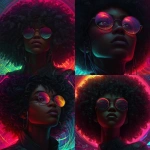
](https://images.ai-img.art/thumbnails/150/5b3fca49762c8c532ff70f250ca3b5900bac75be98d6c82f8f7a220465ad534a.webp)
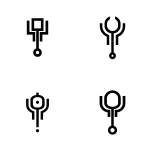
](https://images.ai-img.art/thumbnails/150/4d725f4d5380eb583bdebf0aad4c789acd6782398b4050f01f350a939dd4c2af.webp)
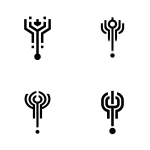




](https://images.ai-img.art/thumbnails/150/cc8f7b8338e849e1e11a902ac51eda96c8f710e5d829c5b4d57b56fa05d28e95.webp)
](https://images.ai-img.art/thumbnails/150/c04f7210bb9d35279503ff64ad44a9826d6909838f777fb1edd0fdece2ac7c70.webp)





](https://images.ai-img.art/thumbnails/150/f1cbba604c7411267acd95acaa4746a5ee006a25ade5e596a9501884b384e1dd.webp)

](https://images.ai-img.art/thumbnails/150/9ad2f4d771346182f4c9b6d1712edfd0b6b776f37b75dac606a8e03b1bd2dc47.webp)
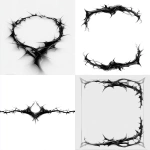
](https://images.ai-img.art/thumbnails/150/78a1311461ccc4b60dd1430d56ee04b3b5612a3145aef0a32196168d5489fdf3.webp)

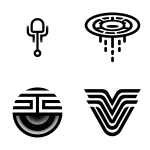
](https://images.ai-img.art/thumbnails/150/55e9c8ac48f7ca1311ec4a843e2616aa87c73e2217901ac138d198afb0b4f1db.webp)



](https://images.ai-img.art/thumbnails/150/f9928aee79da6b2028ac7a7129ac30e6475a85d5300661776fde267c2da839ab.webp)



](https://images.ai-img.art/thumbnails/150/8884a7a8953b23d6c882f33524c10e09d320bbce4f305f2c7e79c402d82c1760.webp)

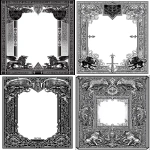
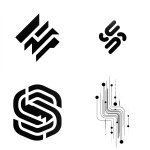
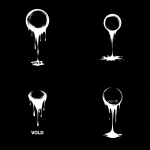


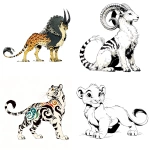

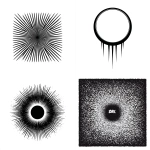

](https://images.ai-img.art/thumbnails/150/45d068cbdc39002eccc21e2169438a3c142426219fda8c9e027c536cdf66811e.webp)
](https://images.ai-img.art/thumbnails/150/89d86a1c20e8844b6d4ce23cf0e6ae10c19923617b6be16cac5d3cc513bf9c4e.webp)